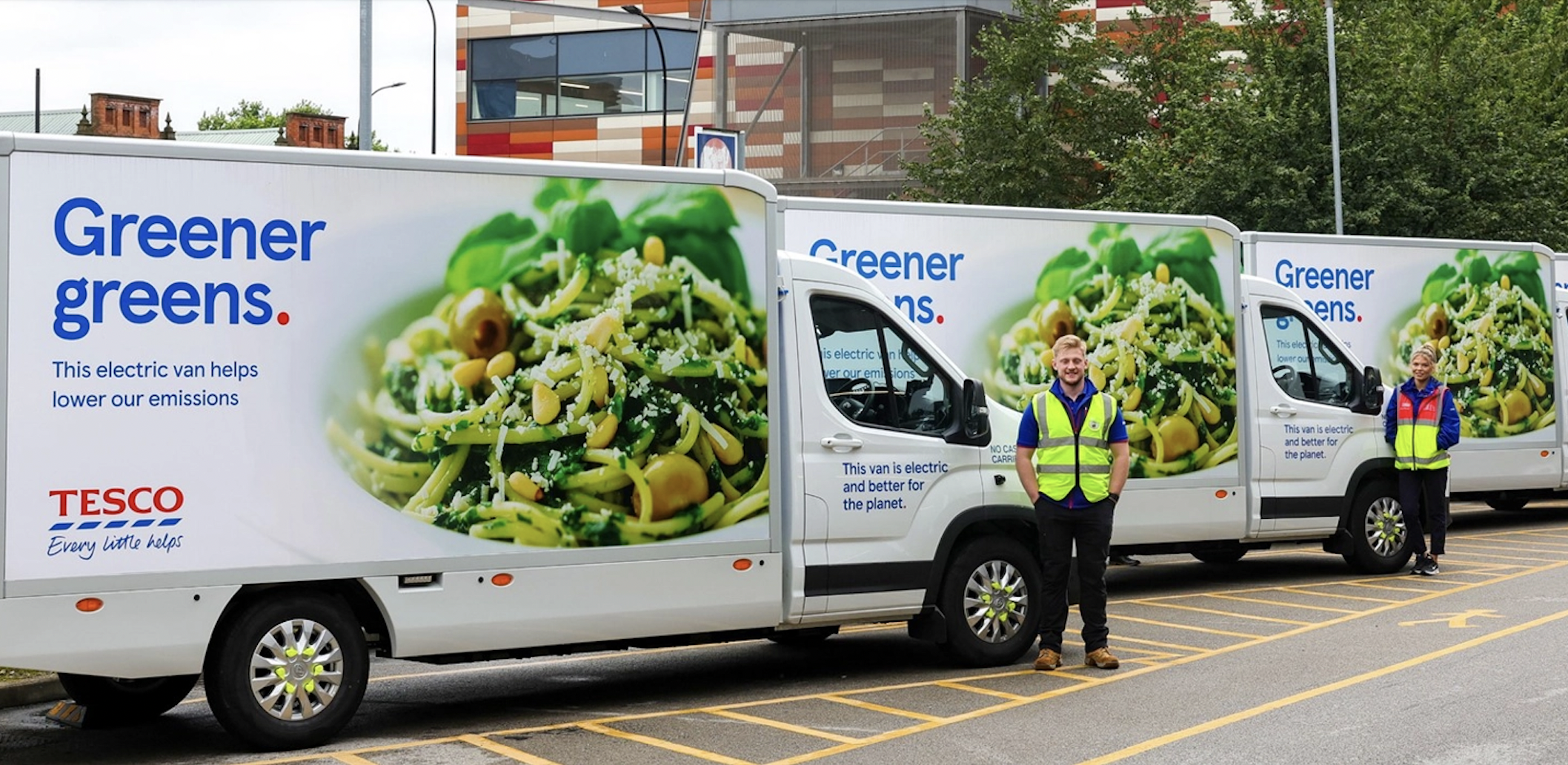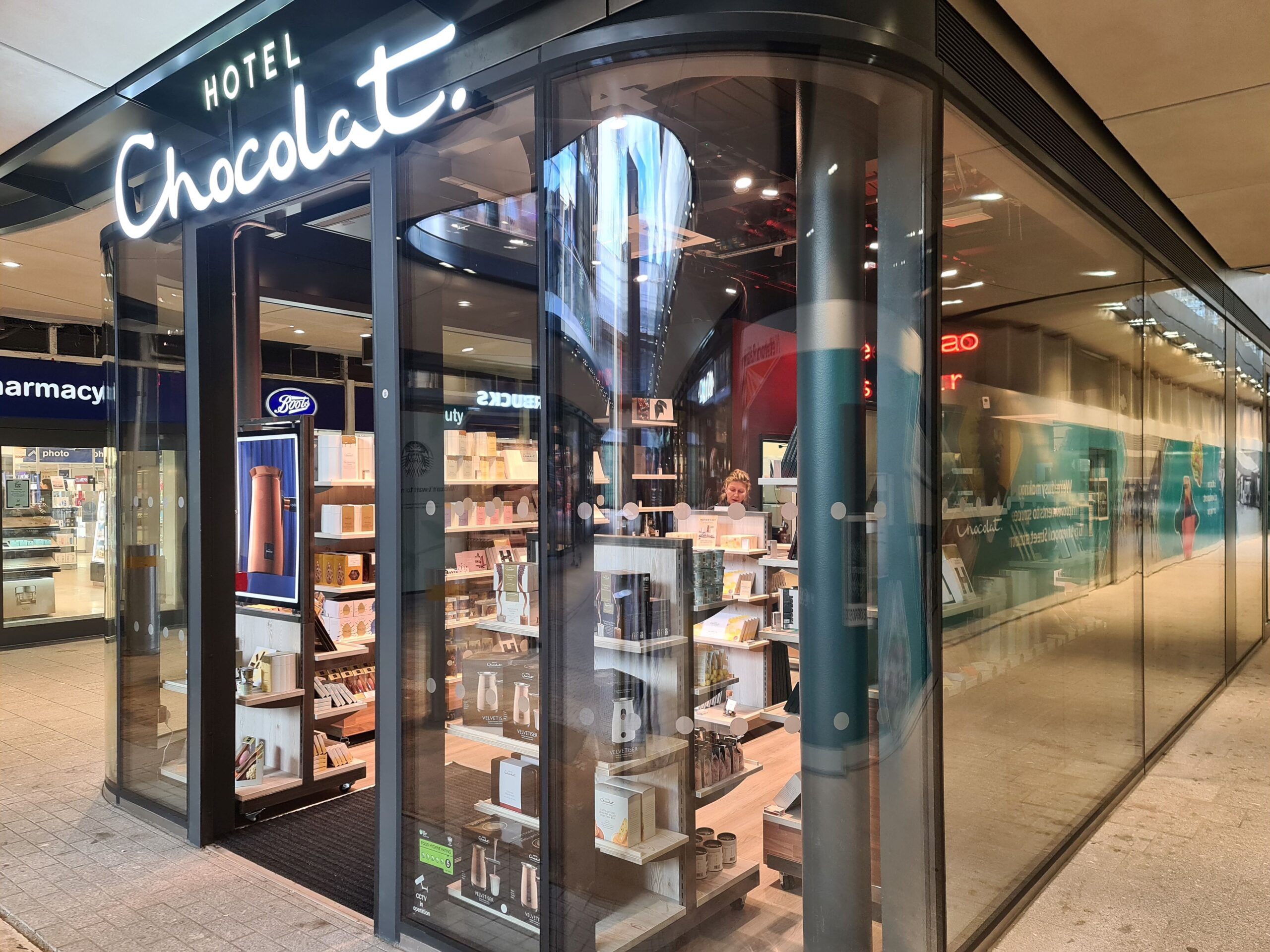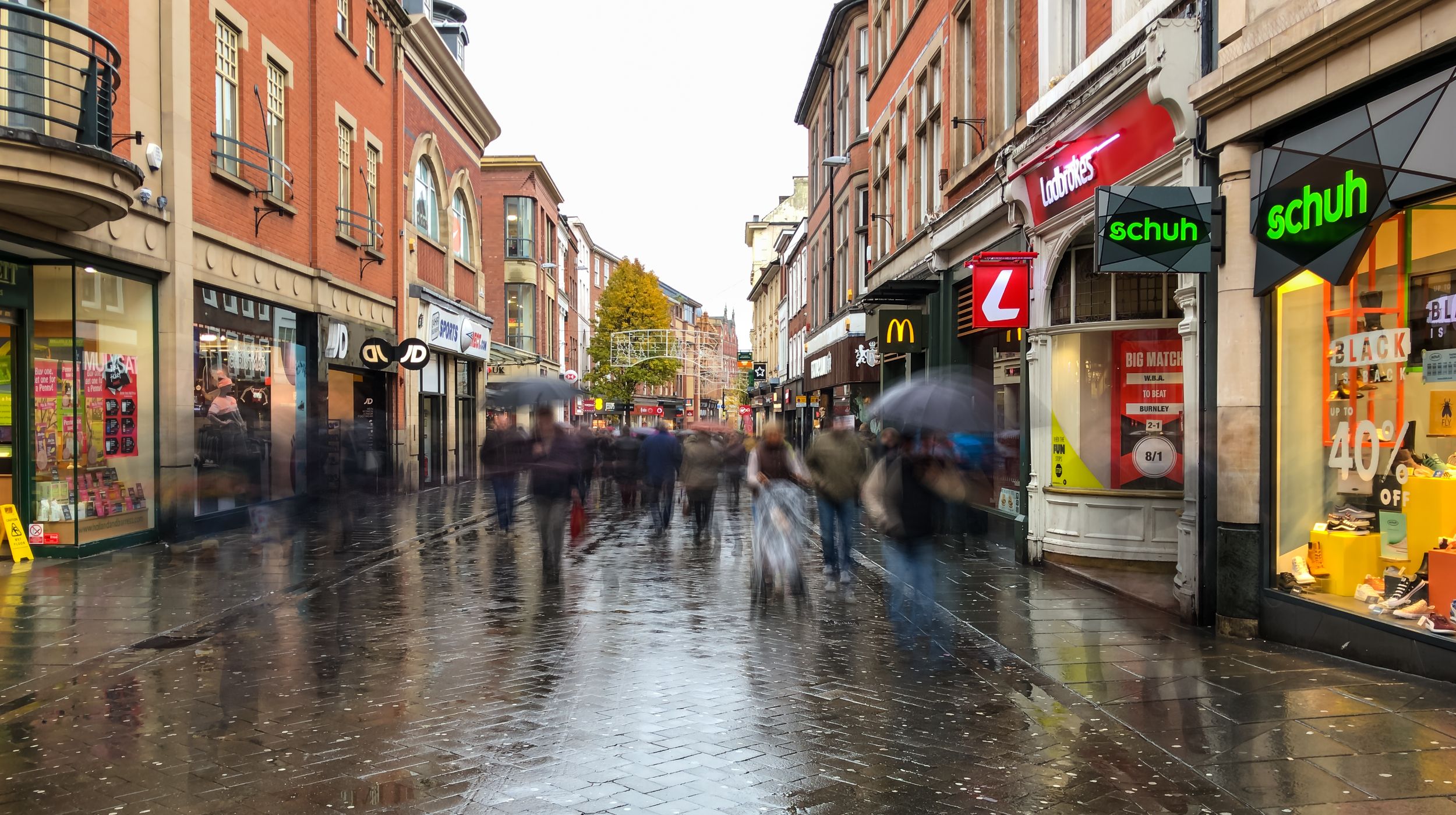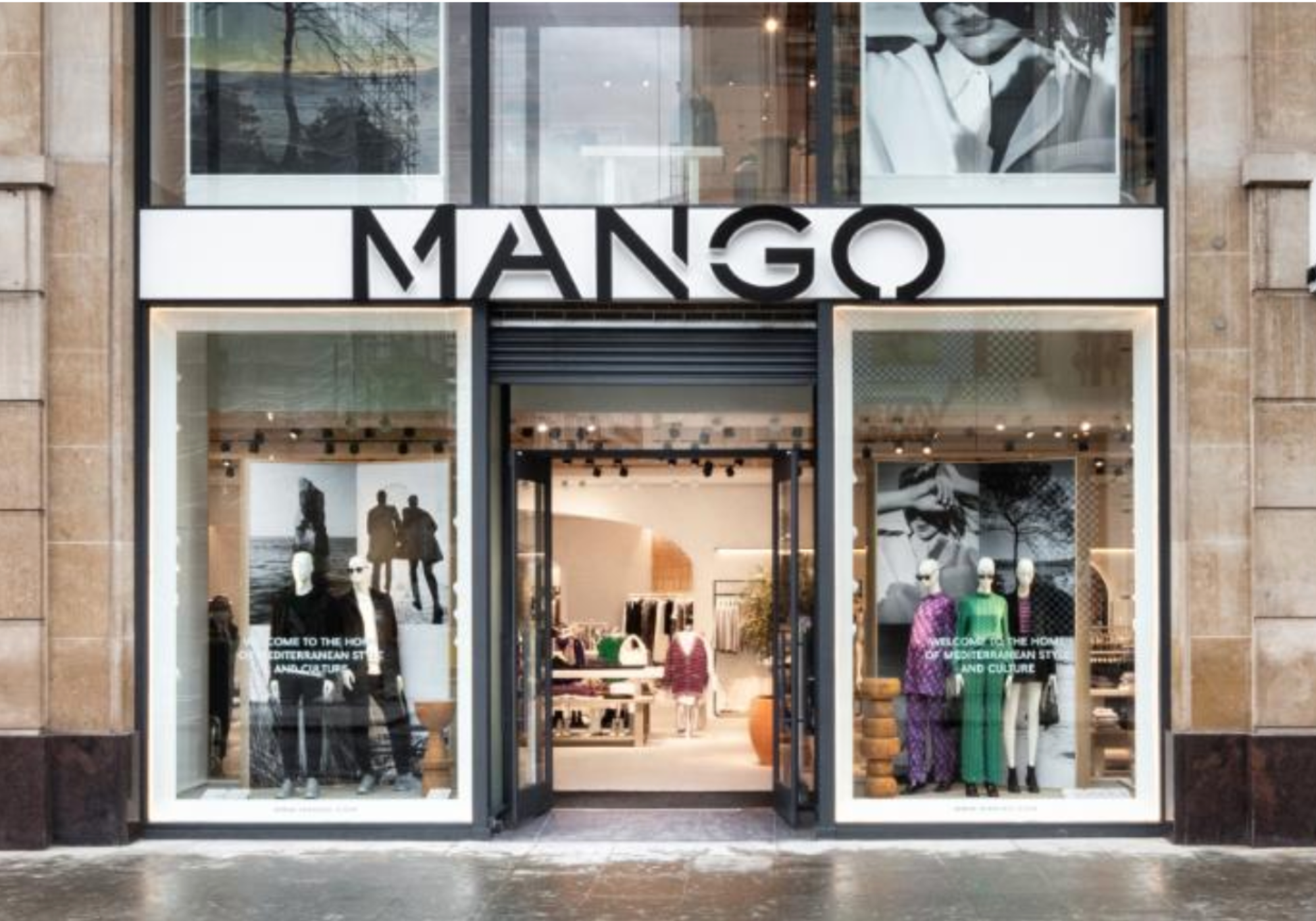As Tesco celebrates the introduction of its 500th electric customer home delivery van, are electric fleets really the answer to cleaning up delivery?
Retailers and carriers are working to transform their delivery fleets, often swapping out fossil-fuel powered vehicles with electric vans and trucks. In July, Royal Mail announced passing the milestone of 5,000 electric vehicles (EVs), while John Lewis has pledge to move 4,000 cars, vans and light trucks to electric by 2030.
EVs are championed as emission-free solutions to the last-mile’s air pollution problem, however they come with high levels of initial investment and this is not only for the vehicles. To fully support an electric fleet roll-out, companies also require the supporting charging infrastructure. And according to multiple reports, there just isn’t enough to go around.
“Fleet managers who want to migrate from fossil fuels to electric or hydrogen vehicles must consider the capabilities and demands of their fleets, and despite their various objectives and requirements, the whole industry agrees on one thing: there aren’t enough charging stations” noted David Hytch, technical director at PlusCharge, in a piece for FleetNews.
Taking matters into their own hands
To get around the lack of a reliable charging network, some retailers and carriers are building their own. In April, Ikea announced a £4.5m investment in UK electric charging infrastructure, which will provide charging points for electric delivery vehicles across the country to enable more emissions-free deliveries.
While, parcel delivery company DPD turned to technology. It is trialling a new mobile powerbank charging concept that could provide a solution for commercial van drivers unable to charge their EVs at home overnight.
Pedal-powered
For those unable to build their own power networks, there are smaller two-wheeled options. Cargo bikes, and even electric powered versions are growing in popularity. These bikes also go some way to help reduce congestion, and have proven to be more efficient especially in urban areas than their electric van counterparts.
Earlier this month, Evri expanded its use of e-cargo bikes. The company, which already uses e-cargo bikes in Bristol, Edinburgh and Manchester has partnered with Zoomo to provide 15 EAV cargo bikes for its Wimbledon depot. It follows Evri’s recent commitment to triple its parcel deliveries by e-cargo bikes to over 500,000 within the next year.
“Research shows that e-cargo bikes deliver goods 60% faster than vans in city centres while reducing carbon emissions by 90% compared to diesel vans and one-third compared to electric vans,” explained Nancy Hobhouse, head of ESG, Evri.
Ecommerce giant Amazon and furniture firm Ikea are just two retailers trialling delivery bikes.
As with any journey, the route to sustainable retail delivery could have many bumps along the way. No one solution – whether EVs or cargo bikes – will be the answer to cleaning up the last-mile.
We deliver!
Our editor picks some choice pieces from the analysis flow and sends them to your inbox every Wednesday. Dedicated research report previews will also come direct to you. Subscribe for the emails.
Why not join us on Linkedin and you’ll get the best updates on our research and analysis – UK, Europe and Global – in your feed.







